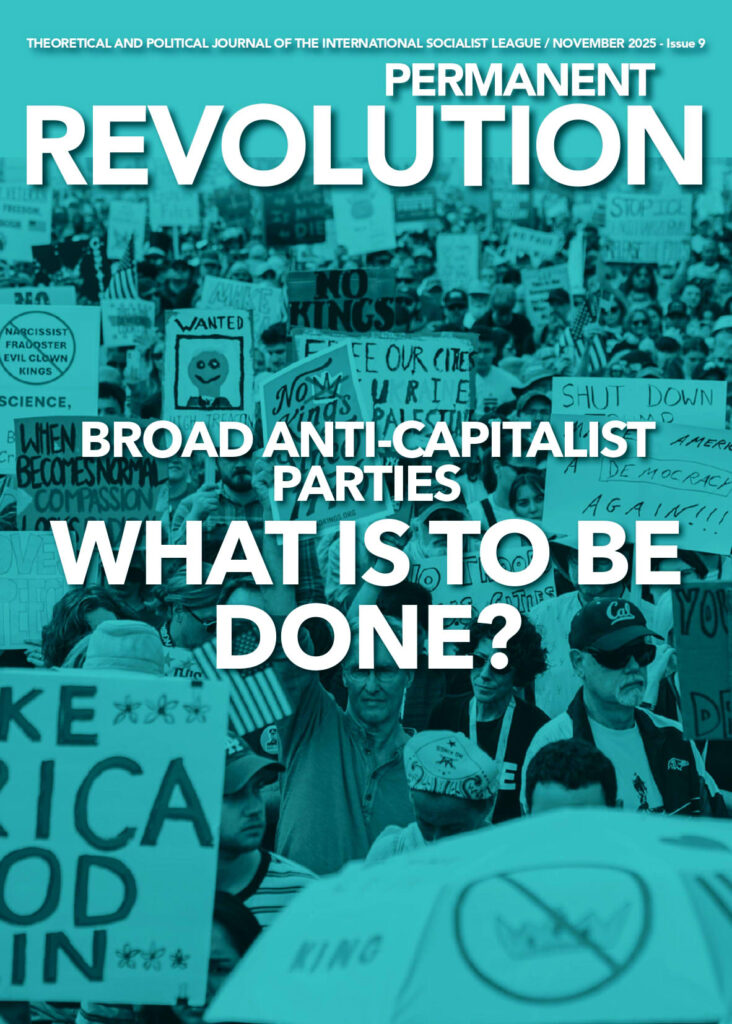For Jaqueline Katherina Singh – Gruppe Arbeiter:innenmacht – German Sektion of L5I
It’s done: The traffic light government has been struck down. Not in the way one would have wished for the “D-Day” from the ranks of the FDP, but by the SPD itself, which no longer wanted to endure the clamor and threats of the 4.0% party. While Lindner initially tried to feed the myth that Scholz had put him “on the street”, this fairy tale is now history. The result: On February 23, those with German citizenship will be able to vote. But why did the government crisis come about in the first place?
What happened?
The chronology of the disputes is long: heating law, investment fund, basic child benefit, citizen’s allowance and finally the question of the budget. Again and again, the governing parties have blocked each other and tried to enforce their positions through public statements. There was also no lack of side blows from the opposition. Merz in particular made the best effort to drive the government ahead of him. Since September, the cracks have become even clearer. Lindner published an 18-page paper for a completely different economic policy than the coalition agreement provides, bypassing his colleagues. And yet the end came a bit abruptly when Scholz appeared in front of the camera at the Federal Chancellery on Wednesday, November 6, at 9:25 p.m. In his usual dry manner, he explained what had raced through the media as breaking news a few minutes earlier: as chancellor, he had dismissed Finance Minister Christian Lindner from his office. This step is necessary to avert damage to Germany, so as not to let it sink into chaos. Lindner’s unwillingness to compromise does not serve the country, but to save his own party.
Core of the disputes
The premature end of the traffic light illustrates the crisis of the bourgeois party landscape in view of the poor economic situation in Germany. It is about the central question of who should pay for the costs (and what debt should be taken on in the first place). The FDP actually has no differences with the SPD on the rearmament course, on militarization, is actually even more warmongering – but this is not to be paid for by new debt, but by rigorous social cuts in citizen’s money, refugees, the retirement age and “over-regulated” working conditions.
The FDP has clear ideas on this: planned attacks on the right to strike, ice-cold enforcement of the debt brake, further cuts in the social sector. The working class and oppressed should pay – and in full severity, not with measured force, as the SPD and Greens have in mind. There must be no tax increases for companies under any circumstances. The SPD and the Greens, on the other hand, stand for a transformation course in the classic Keynesian style: It is better to take on more debt and, as Scholz said, not to play off “internal and external security” against each other. In other words, to pursue the interests of German imperialism with social foam. Likewise, there have always been differences in the orientation between Social Democracy and Liberals. The fact that they led to the government crisis therefore has deeper causes than the loss of votes of the FDP.
a) Distribution crisis as an obstacle to investment
Seen in this light, the traffic light is also a victim of the turning point that Scholz himself announced at the time. When the “progress” coalition came together, there was neither Ukraine nor Gaza war. In the midst of war, inflation and recession, however, patronizing was not easy to realize. At least not if one limits oneself to pursuing realpolitik in parliament and has the interests of the ruling class, which is glorified as “our economy”, firmly in mind.
The background to this is also the distribution crisis, an economic development since the financial crisis of 2007/2008. Even if it could be slowed down by countercyclical measures and the expansion of credit and debt, it was only at the price of perpetuating its causes – falling profit rates and overaccumulation of capital. With the synchronized global recession as a result of the corona pandemic and the Ukraine war, the situation for German imperialism, which had been able to hold up quite well until then, has come to a head. Increased energy prices have caused massive problems for the exporting nation. In addition, there is competitive pressure and the need for renewal in one of the core sectors of German industry, the automotive industry. We have taken a closer look at the current situation here: https://arbeiterinnenmacht.de/2024/10/29/brd-wirtschaft-duestere-wolken/. The result, however, is that the current recession, in combination with the economic development of recent years, is massively reducing the scope for the social partnership established in Germany so far and thus also calling into question the political and economic relations between the classes.
b) Factionalization within the German bourgeoisie
Another effect of this development is the international shift to the right. In the course of the crisis, competition between different fractions of capital increased and the situation of the petty bourgeoisie and the wage-dependent middle classes became more insecure and unstable, which was expressed in Germany in the founding of the AfD. At the same time, during the Merkel era, German imperialism tried to manoeuvre in international politics between the US on the one hand and Russia and China on the other, which even reflected differences within the ruling class over the strategic orientation of the Federal Republic of Germany and the EU. With the increase in inter-imperialist confrontations and the formation of blocs, this has become more difficult. The Ukraine war represents a turning point here, because a strategic alliance with Russia, as Kohl and Schröder, but also parts of the Merkel governments, had sought, has moved into the distant future. However, this does not always have to stay that way, because Trump’s victory in the US elections naturally also calls into question the transatlantic orientation of the FRG and the EU. The problem is clearly evident in Ukraine policy. On the one hand, support for Ukraine is guaranteed like a mantra and the CDU/CSU is still calling for its expansion. On the other hand, Germany itself is of course unable to replace the USA, and a permanent war in Europe is actually more of a burden than a strategic advantage (as the AfD and the BSW openly think, parts of the SPD and CDU tend to think covertly).
Regardless of the situation in Ukraine, however, it will lead to a massive acceleration of European rearmament (including a possible debate about the “nuclear independence of the Federal Republic”), to a new attempt to make the EU arms industry more competitive and thus strengthen Europe, i.e. German dominance in the EU, in the long term. However, the problem of the German bourgeoisie is also that it does not really pursue a common strategic vision of how this policy can be implemented – and this conflict ultimately permeated the traffic light government, which also failed because of these contradictions.
The others win
The AfD and the Union benefit most from the development. Under Merz’s leadership, the latter has already been very good at staging itself in the past and driving the government ahead of it – most recently on the question of when the new elections should take place. A new government led by the Union – and with Friedrich Merz as chancellor – is therefore likely. Meanwhile, the AfD can not only pursue the course that it has “always” found the traffic light shit, but also score points for itself on the issue of peace. Because while the SPD and the Greens, but also the CDU/CSU and FDP, will continue to blow the war horn, the AfD and BSW can present themselves as peace parties in Ukraine.
The Left Party will have the hardest time. It is also the one whose organizational structure is currently the most devastated. She might have been able to pick herself up until the Bundestag election in September, but early elections make an early end more likely for herself at this point – that’s why the focus is now on winning at least 3 direct candidacies. The most likely chances are Gysi (Berlin, Treptow-Köpenick), Bodo Ramelow (Erfurt) and Sören Pellmann (Leipzig, Connewitz). However, this will not be a walk in the park due to the competition from the BSW.
What remains?
The next election and the formation of a government in Germany will decide which course will be taken. It is clear that there will be social attacks, whether with or without cushioning policies on the part of the SPD and the Greens. That is why it is necessary not to wait passively until elections are held and a new government has been consolidated. Rather, we must now say clearly: We will not pay for your wars and crises! An end to social partnership, against mass layoffs and the debt brake!
Because the state and municipalities are already making diligent cuts, especially in the social sector, and the hospital reform is not only causing job cuts and layoffs in the automotive industry. In order to successfully fend off the attacks, a break with the policy of class collaboration, especially by the trade unions, is needed, an action conference against the crisis, at which the left in Germany discusses with which demands it can show a way out of the current misery – in collective bargaining rounds and through independent actions. And we need a discussion about what kind of party, what program, what policy we need against the crisis. The collapse of the traffic light, the decline of the SPD and the Left Party make it clear that we do not only have to build up organized mass resistance. At the same time, we must fight for a revolutionary alternative to reformism, for the building of a revolutionary workers’ party.




